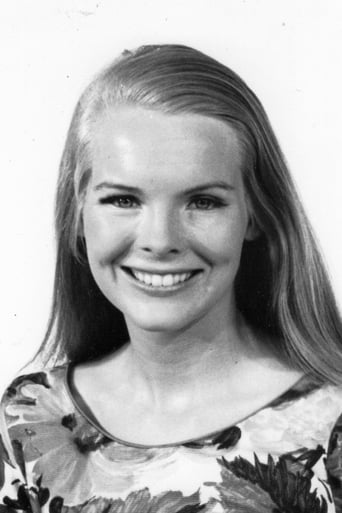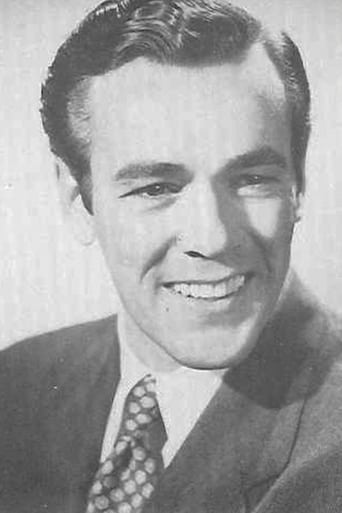Protraph
Lack of good storyline.
Tedfoldol
everything you have heard about this movie is true.
Nicole
I enjoyed watching this film and would recommend other to give it a try , (as I am) but this movie, although enjoyable to watch due to the better than average acting fails to add anything new to its storyline that is all too familiar to these types of movies.
dansview
Everyone loves an alpha male, until you realize that we are just pawns in his self-serving story. He's the lead and he needs you to make him feel important.No one has mentioned this, but we heard that this film's lead used to make fun of his financially conservative childhood friend. The alpha male mocked the nerd. Now the nerd is super successful and the alpha male has fallen from grace.Everything comes easy to the alpha male. Without some regulating code or force larger than himself, he will usually indulge. That means stepping on others, belittling them, or using them. If they have outward charm to go along with their optimistic and fearless nature, they are hard to resist. We want to be them or be with them. I like one reviewer's notion that the pools were part of a cleansing process he needed to go through before returning home. I also like the idea that an optimistic dreamer would love to create a youthful adventure like this one on a gorgeous summer day. It's invigorating. I don't resent material prosperity, nor believe that it must produce a shallow lifestyle. Some suburbanites go to church and do volunteer work. Many feed the homeless and coach Little League. Prosperity is good, full American, and worthy of celebration. We don't know for sure that the friends he encounters are all shallow. There are some nudists and one callous braggart, but the others seem ok. Even the nudists are doing charity work. Lancaster is perfect here. He exudes well-being and optimism perhaps better than any actor could when necessary, and profound confusion and regret when that's appropriate. The longing in his eyes for something....perpetual youth, first love, eternal sunshine is truly moving. The orchestration was fine by me. It was a different time period. I agree with another reviewer that the leaping scene should have been cut short.What we never come to understand is why he was barefoot and shirtless in swimming trunks, before the idea ever came to him to swim through the neighborhood. Where did his day begin, and why didn't he bring at least a small backpack with belongings?His lack of attire makes me think that it was all a dream, yet I'm thankful they didn't reveal that. I'd rather be left wondering. The moral? Watch the story of football coach Joe Paterno, or those of O.J. or Bill Cosby. Your glory days can continue until the end, unless you make one too many crucial mistakes along the way. Then they won't just stop. They will come to a violent, crashing, tragic end, and your mistakes will obliterate the memory of everything you did to attain that glory.
mark.waltz
Swimming with the sharks of society is a hobby for the former Jim Thorpe, all American, jumping hurdles again and running from estate to estate for a quick lap and chat with the owners. It seems that he knows all of these society people, some seemingly nice, others outwardly hostile, and a few of the women obviously in lust with his tight body. He's sort of an angel to some and a devil to others, and in each of these encounters a little something is learned. Lancaster is in every single scene, surrounded by a cast of very familiar faces who pop in and out quickly yet leave a mark on this journey. The film starts off on a friendly note but things get tense quickly. Some of the wealthy businessmen types try to get him involved in business deals or offer him a job. The women, who range in age from early 20's to late 50's, ogle him. It's apparent that everybody wants a piece of him, whether to possess him or chew him up and spit him out.Among the famous faces are Kim Hunter, Marge Champion, Diana Muldaur, Cornelia Otis Skinner (making accusations towards him that you can only guess what transpired) and Dolph Sweet. He flirts with a young Joan Rivers, playing an insecure woman who basks in his attention and nearly falls under his spell. Guests at a party stand by as the hostess anayalates him. Later Muldaur begs him to leave her alone as her facade of hate crumbles to show the things line where hate ends and love begins. It's a journey for this spirit whom Lancaster plays to realize the impact he's made on everyone of these people, one which has destroyed some of them and one which threatens to destroy him. It's a hard film to understand if you are not in the right frame of mind, and one which could use repeat viewings to pick up things you may have missed, that is if you dare to put yourself through it a second time.
MisterWhiplash
I liked that Burt Lancaster called The Swimmer, about a man who decides to "swim to home" across the relatively quiet upper-middle class suburbia by taking a swim in each of his neighbors swimming pools (and one rec center), "Death of a Salesman in swim trunks." I can still see the connections with the disillusionment of, and a critique by others, of the American (white) middle-class male in the promise of having it "all", but having the connection to Willy Loman and the story of falling so completely from grace and promise (and failing himself repeatedly) marks this as something special in American cinema at the time. And Burt Lancaster, in his 50's by the time he made this, is fit for the part (in more ways than one) and really gets into how this man is so happy to be doing this "adventure" as he calls it, like he's some sort of explorer. But what is he exploring? Actual places, or people's hearts and minds? A lot of this can be (or should be, or both) read as an allegory, or some kind of surrealistic dive (no pun intended) into the well-off. These people have such lavish homes and places, none of them have to worry about being without (though a little boy may be taught to value his money early on with a lemonade stand), and of course their pools and/or tennis courts. So with a story like this, adapted from a short piece of prose by John Cheever, the plot isn't really of significance. Although, to that point, it is fascinating for me in watching this how it feels like he *must* swim at each of the places he stops at, even if it's only for several seconds. And at one point when he discovers one pool that's been drained of water - the lemonade entrepreneur can't swim - he mock-swims it. Not great, but close enough.So with this extremely basic through-line we get what is more closely related to European cinema of the period: it's a mood piece, all about expressing how this man goes across the spectrum. He is jubilant, happy, accomplished, serious, focused-determined, downtrodden, sad, angry, kind of crazy, bewildered (watch out for those cars in that heavily edited walking-across-a-highway sequence!) and melancholy. The conflicts of the movie come from whether or not those he comes across will be good to him or not; it seems like, for the most part, everyone at least has some familiarity with him and at most they've even had relationships - in one woman's case, Shirley (a fantastic ten minutes for Janice Role), a former lover... on the side, as it were.If it has any closer relation than Death of a Salesman, which may have been what was most comparable at the time for Lancaster, it's Mad Men: I could have see Don in a sort of dream episode like this, where everything from masculinity to ethical codes to psychology and how men treat women and objects and possessions comes into question. And Lancaster is the one here going through these emotions, to plumb the depths to get at what this man may be all about, to excellent effect. There are moments it feels like he could become, well, affected in his delivery but it doesn't happen; he's a passionate person and comes off as such in whatever he's talking about (and it may even come close to being uneasy, like a walk and talk with a much younger woman, an ex "babysitter"). If Lancaster doesn't work than neither does the movie, in large part. I'm glad he gets to deliver here and it's certainly one of his three or four major pieces of acting in a career full of wonderful roles.If I don't quite love the movie as much as some out there - a flop on release initially it's gained a following over time (youtube Gilbert Gottfried and TCM, of all people, to see a good talk about the film) - it may be because certain little things make it awkwardly dated. When Ned is walking through the woods to go from place to place it's shot and edited to be fairly dream-like and hallucinatory, which may be fine thematically, but in how it looks today it's stuck in that 60's way of messing with lenses and filters and shots far off with actors speaking ADR that doesn't totally work for me. And there's a short scene at one of the houses where a young Joan Rivers pops up and it feels misdirected (and according to her she was).These small misgivings aside, it is a film that is lucky to get its audience over the years. It's at times strange and borderline, darkly, comical, and then by the last half hour as things get grimmer and more oppressive (and that last several minutes when he does get 'home'), it has the feeling of some fable that's gone into the realm of tragedy. We may not understand fully what Ned's gone home to, but there's some intuition that failure is at the heart of it. And maybe the river will flow for someone else some other time...
Connie Cunningham
Looking as if he had just finished his rendezvous with Deborah Kerr on the beach in "From Here To Eternity," Burt Lancaster costumed in only swim trunks that conform to his fit body plays Neddy Merrill in "The Swimmer." It is based on John Cheever's short story of the same name. The movie is set in the 1960s in a well-to-do northeast American white suburb populated with successful middle-aged business executives complete with fashionable and well-coiffed housewives and matching children and nice houses with manicured lawns and sparkly swimming pools. The cinematography expertly conveys the time and place. The movie begins with Lancaster immersing himself in a neighboring family's pool sitting atop a verdant hill. The wife and husband greet him cheerily and talk about the hard-drinking party they held last night and apparently every weekend. Lo and behold a buddy from Neddy's school days pops by, but he's in no mood to join Neddy for another swim in the neighbors' pool and neither are the neighbors. They prefer Neddy stay beside the pool and knock down a few drinks with the sound of ice tinkling in their lowballs and laughter and flirting filling the air.Neddy is a fish out of water. He politely shakes his head and looks out over the crest and sees that about every house on the way to his home has a pool. He announces that the string of cement ponds form the River Lucinda, in honor of his wife, and declares he will swim in every pool until he arrives home. The neighbors and his school buddy chuckle among themselves. But Neddy is serious and leaves smilingly, intent on swimming every section of River Lucinda.This is not an inspirational movie about a man trying to complete a self-imposed challenge and doing a victory lap at the end. It is about a suburban man in a country-club atmosphere who comes to realize with every stroke he takes in his neighbors' pools his life is not what he thinks it is, and death may just be around the corner. It is more than middle age crazy. This is a film about a man's thoughts and previous actions played out in the back yards of Neddy's peers who are not stuck in the past but are complacently comfortable in the present. There are happy, liberating, and gentle moments during and between Neddy's swims to be sure. He meets a young woman who was a childhood friend of his daughters and a small boy selling lemonade in need of a friend. But slowly the people in Neddy's enclave are not so kind to him and detest his taking dips in their pools or crashing their garden parties. Water can be cathartic, but not in Neddy's case. Mud and other impurities accompany him on his trip down memory lane, slowly awakening him from his amnesia as he visits a spurned lover and learns of debts way past due."The Swimmer" will be enjoyed by those moviegoers who like discovering the interior thoughts and experiencing the exterior reactions of an aging suburban stud put out in the rain with nowhere to go.






